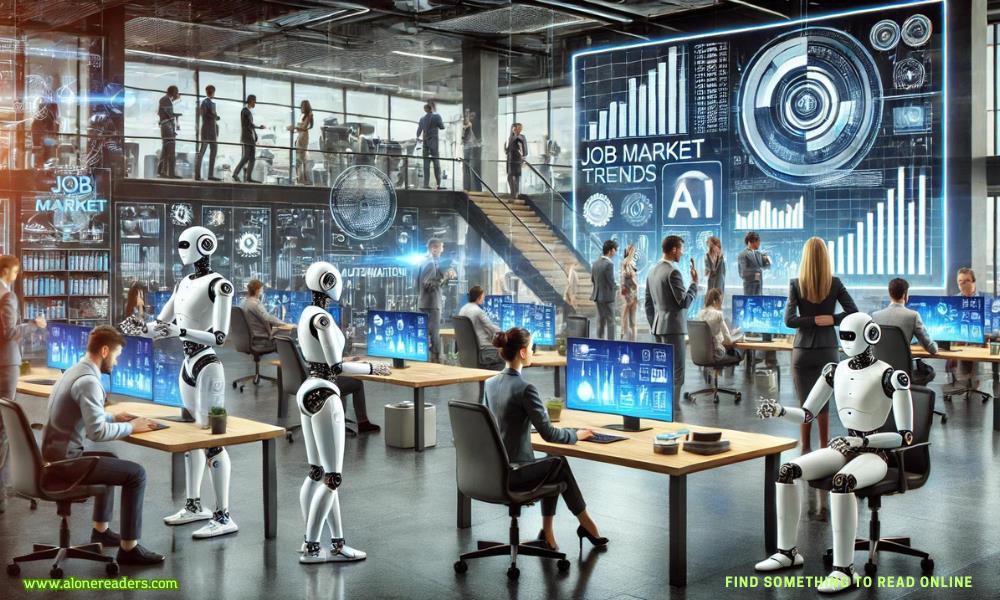
Automation, driven by rapid advancements in artificial intelligence (AI) and robotics, is transforming the job market at an unprecedented pace. As we navigate the 21st century, understanding how these changes impact employment and the nature of work becomes crucial. This article explores how automation is reshaping the job landscape, the emerging trends in the job market, and the skills required to thrive in this new era.
Automation refers to the use of technology to perform tasks that were once carried out by humans. From manufacturing to customer service, automation has been gradually integrated into various industries to enhance efficiency, reduce costs, and improve accuracy. The advent of AI and machine learning has accelerated this trend, enabling machines to perform complex tasks that were previously thought to require human intelligence.
Job Displacement and Creation
One of the most significant concerns regarding automation is job displacement. Routine and repetitive tasks, particularly in manufacturing and administrative roles, are increasingly being automated. This has led to a decline in demand for certain job categories. However, automation also creates new opportunities. As routine tasks are automated, there is a growing demand for jobs that require human creativity, emotional intelligence, and problem-solving skills.
Emergence of New Job Roles
Automation is giving rise to new job roles that did not exist a decade ago. Data scientists, AI specialists, and automation engineers are just a few examples of emerging professions. These roles require specialized skills and knowledge in areas such as programming, data analysis, and machine learning.
Shift Towards Gig Economy
The gig economy, characterized by short-term contracts and freelance work, is expanding in response to automation. Companies are increasingly relying on a flexible workforce to adapt to changing technological needs. This shift offers workers more flexibility and the opportunity to diversify their skills across multiple projects.
To remain competitive in the evolving job market, individuals need to adapt and acquire new skills. Here are some key competencies that will be essential:
Technical Skills
Understanding and working with technology is becoming increasingly important. Proficiency in programming languages, data analysis, and cybersecurity will be highly valued. Additionally, knowledge of AI and machine learning will be crucial for many emerging job roles.
Soft Skills
While technical skills are vital, soft skills are equally important. Creativity, critical thinking, and emotional intelligence are attributes that machines cannot replicate. These skills enable individuals to solve complex problems, innovate, and collaborate effectively with others.
Lifelong Learning
The rapid pace of technological change means that learning should be a continuous process. Lifelong learning and adaptability are essential to keep up with evolving job requirements. Online courses, professional certifications, and on-the-job training can help individuals stay updated with the latest trends and technologies.
Manufacturing
The manufacturing sector has been at the forefront of automation. Robots and AI-driven systems are increasingly being used for tasks such as assembly, quality control, and inventory management. While this has led to job displacement in some areas, it has also created opportunities in robotics maintenance, programming, and system integration.
Healthcare
Automation is revolutionizing healthcare by improving diagnostic accuracy, patient monitoring, and administrative efficiency. AI-driven tools can analyze medical images, predict patient outcomes, and assist in surgery. These advancements are creating new roles for healthcare professionals in technology integration and data management.
Retail
In the retail sector, automation is enhancing customer experience through personalized recommendations, chatbots, and automated checkouts. This shift requires workers to focus on customer service, sales strategies, and technical support for automated systems.
Ethical and Social Implications
The rise of automation brings ethical and social challenges. Job displacement can lead to economic inequality and social unrest. Policymakers and businesses must address these issues by promoting inclusive growth and ensuring that the benefits of automation are widely shared.
Workforce Transition
Supporting workers through the transition to an automated job market is crucial. This includes providing access to retraining programs, career counseling, and financial support during periods of unemployment. Collaboration between governments, educational institutions, and businesses is essential to facilitate this transition.
Conclusion
Automation is undoubtedly transforming the future of work. While it presents challenges in terms of job displacement and economic inequality, it also offers numerous opportunities for job creation and skill development. By understanding the trends and acquiring the necessary skills, individuals and businesses can navigate this transition successfully. Embracing automation and fostering a culture of lifelong learning will be key to thriving in the future job landscape.